![Peacock, Annette / Paul Bley: Dual Unity [VINYL] (Cosmic Jazz) Peacock, Annette / Paul Bley: Dual Unity [VINYL] (Cosmic Jazz)](https://www.teuthida.com/productImages/misc4/35108.jpg)
Reissuing Annette Peacock and Paul Bley's live album from 1972, an electroacoustic jazz record using one of Robert Moog's earliest synthesizers, in a quintet with New Yorkers Mario Pavone on bass and Laurence Cook on drums, with Dutch avant jazz drummer Han Bennink joining them on tour, this album from two concerts at Club B14 in Rotterdam and Espace Cardin in Paris.
In Stock
Quantity in Basket: None
Log In to use our Wish List
Shipping Weight: 24.00 units
EU & UK Customers:
Discogs.com can handle your VAT payments
So please order through Discogs
Sample The Album:
Annette Peacock-vocals
Paul Bley-synthesizer
Han Bennink-drums
Mario Pavone-bass
Laurence Cook-drums
Click an artist name above to see in-stock items for that artist.
UPC: 7427255404071
Label: Cosmic Jazz
Catalog ID: COSMJA 002LP
Squidco Product Code: 35108
Format: LP
Condition: New
Released: 2024
Country: Italy
Packaging: LP
Recorded at Club B14 in Rotterdam, Netherlands on March 26, 1971 (tracks 1 & 2) and at Espace Cardin in Paris, France, on November 16, 1971 (tracks 3 & 4).
Originally released in 1972 as a vinyl LP on the Freedom Records label with catalog code FLP 40109.
"Here's the reissue of Annette Peacock and Paul Bley's Dual Unity album, originally released in 1972 on Freedom Records. Hailed as a pioneer and artistic genius by many, this album captures Peacock in her element alongside husband, Canadian jazz genius Paul Bley.
Dual Unity is a landscape of aural vision captured on tape in 1970, during their first European tour. For 33 minutes and 21 seconds, the listener is absorbed by other spirits. Using Robert Moog's earliest synthesizers, Bley and Peacock apply the strategic use of silence to indicate its reflective nature with captivating results. A statement of immensity through synthetic minimalism and a milestone in the avant-garde, free jazz movement."-Cosmic Jazz
"The madly in love combination of Paul Bley and Annette Peacock, toting all kinds of unstable synthesizer equipment around Europe, and backed by the madcap Han Bennink on drums, adds up to the stuff of musical legend. Sadly enough, this is one of the better musical documents from these encounters, ungenerous as it is in its playing time. Several of the tracks feature a different group, without Bennink. The side-long "M.J." is vaguely ludicrous, although certainly listenable. The amazingly dated nature of electronic sound may turn out to be the overall theme, since sounds that made artists of the early '70s feel practically like they were sitting in the cockpit of a rocket to Mars come across as more than just tame a few decades later. The melody and harmonic structure of this tune, occurring and occurring and occurring as it does, begins to sound like the pop group the Classics IV. Meanwhile, Bennink carries on like he is playing with John Coltrane; good thing, that. Peacock's electric bass is a very nice touch throughout a track that can't be said to sound like that much else on record, by Bley or anyone else.
Of course, subsequent generations of listeners returned to electronic antiques such as this, savoring the tones of the instruments as if chewing on nectar-laden cherries. "Gargantuan Encounter" lacks the longer track's melodic sentimentality, beginning somewhere mid-performance and going straight for the jugular vein with a series of wacky electronic sounds from both Peacock and Bley, all of which the wonderful Bennink tramples as if flattening a small ant hill with an oil drum. With Bennink exiting stage left, the supposition might be a return to a more normal musical environment, but the tracks with bassist Mario Pavone and drummer Laurence Cook are even more chaotic. This rhythm section and the music in general goes wild in a Cecil Taylor manner, Peacock energetically attacking an acoustic piano as part of a mix that is continually saturated by synthesizer sounds. These electronic comments seem more and more like radio frequency jamming as things proceed. Details like a frantic arco bass solo are undermiked, adding to the overall insanity. "Richter Scale" contrasted with one of Bley's piano ballad performances -- on other records, to be sure, as there is nothing remotely lke that here -- show the wondrous contrast certain artists achieve in their careers. The final track is a short showcase for Peacock's vocals."-Eugene Chadbourne, All Music
Get additional information at All Music
Artist Biographies
• Show Bio for Annette Peacock "Annette Peacock's work as a vocalist, pianist, and composer is austere, cryptic, laconic, minimalistic, and relentlessly individual. Her dry delivery and penchant for stark, stripped-down musical "environments" have made her something of a cult figure and an icon of the avant-garde. An early participant (1961-1962) in Dr. Timothy Leary's psychedelic culture experiments and a longtime adherent of Zen Macrobiotics, Peacock has been releasing albums since 1968. But her career has been marked by fairly long periods of silence; this partly explains her relative obscurity. Aside from a brief period of formal study at Juilliard during the 1970s, Peacock is entirely self-taught. Born in Brooklyn, she began composing by the time she was five. Her first professional association was with saxophonist Albert Ayler, with whom she toured Europe in the 1960s. She soon began to write in an idiom she calls the "free-form song," which emphasizes the use of space in contrast to the busy, cacophonous tendencies of free jazz. During this period she met and married her first husband, the double bass virtuoso Gary Peacock. She also began to write material specifically for the avant-garde pianist Paul Bley and his trio. For decades, Bley has remained one of her most devoted interpreters. Among her other accomplishments, Peacock is an unsung pioneer of electronic music. Years before the commercial emergence of synthesizers, she received a prototype from inventor Robert Moog. This prompted her to synthesize her own voice, which according to most reports had never been done before. Ultimately these experiments brought about an innovative 1971 album, The Bley/Peacock Synthesizer Show. Feels Good to MeDespite her decidedly unorthodox profile, Peacock has had several interesting points of contact with mainstream culture. In 1978 she sang three songs on Feels Good to Me, a minor classic by progressive rock drummer Bill Bruford. Her song "My Mama Never Taught Me How to Cook" appears on the soundtrack of Kevin Smith's 1997 film Chasing Amy. And a sample from Peacock's song "Survival" crops up in "Tell 'Em Yu Madd" by Militant the Madd Rapper featuring Busta Rhymes. Most notably, David Bowie has shown interest in Peacock's work over the years. On his 1999 album Hours, the rock legend makes a fairly explicit reference to Peacock's song "I'm the One." Bowie subsequently invited Peacock to collaborate. Pianist Marilyn Crispell saluted Peacock with a 1997 ECM disc titled Nothing Ever Was, Anyway: The Music of Annette Peacock. Peacock's one-track guest performance on the album ended a 12-year recording hiatus (her longest yet). But her official return to the studio came in 2000 with her own An Acrobat's Heart, also on ECM. Although many of her compositions appeared on Paul Bley's ECM titles through the years, Peacock had never herself previously recorded for the German-based label." ^ Hide Bio for Annette Peacock • Show Bio for Paul Bley "Hyman Paul Bley, CM (November 10, 1932 - January 3, 2016) was a Canadian pianist known for his contributions to the free jazz movement of the 1960s as well as his innovations and influence on trio playing and his early live performance on the Moog and Arp audio synthesizers. Bley was a long-time resident of the United States. His music has been described by Ben Ratliff of the New York Times as "deeply original and aesthetically aggressive." Bley's prolific output includes influential recordings from the 1950s through to his solo piano records of the 2000s. Bley was born in Montreal, Quebec, on November 10, 1932. His adoptive parents were Betty Marcovitch, an immigrant from Romania, and Joe Bley, owner of an embroidery factory. However, in 1993 a relative from the New York branch of the Bley family walked into Sweet Basil in NYC and informed him that his father was actually his biological parent. At age five Bley studied violin, but at age seven he decided to switch to the piano. By eleven he received a junior diploma from the McGill Conservatory in Montreal. At thirteen he formed a band which played at summer resorts in Ste. Agathe, Quebec. As a teenager he played with touring American bands, including Al Cowan's Tramp Band. In 1949, when Bley was starting his senior year of high school, Oscar Peterson asked Bley to fulfill his contract at the Alberta Lounge in Montreal. The next year Bley left Montreal for New York City and Julliard. In the 1951, on a return trip to Montreal, Bley organized the Jazz Workshop with a group of Montreal musicians. In 1953 Bley invited the bebop alto saxophonist and composer Charlie Parker to the Jazz Workshop, where he played and recorded with him. When Bley returned to New York City he hired Jackie McLean, Al Levitt and Doug Watkins to play an extended gig at the Copa City on Long Island. In 1953 the Shaw Agency booked Bley and his trio to tour with Lester Young, billed as "Lester Young and the Paul Bley Trio" in ads. He also performed with tenor saxophonist Ben Webster at that time. He then conducted for bassist Charles Mingus on the Charles Mingus and His Orchestra album. Additionally, in 1953, Mingus produced the Introducing Paul Bley album for his label, Debut Records with Mingus on bass and drummer Art Blakey . (In 1960 Bley recorded again with the Charles Mingus Group.) In 1954 Bley received a call from Chet Baker inviting him to play opposite Baker's quintet at Jazz City in Hollywood, California for the month of March. This was followed by a tour with singer Dakota Staton. Down Beat Magazine interviewed Bley for its July 13, 1955 issue. The prescient title of the article read, "PAUL BLEY, Jazz Is Just About Ready For Another Revolution." The article, reprinted in Down Beat's 50th Anniversary edition, quoted Bley as saying, "I'd like to write longer forms, I'd like to write music without a chordal center." Bley's trio with Hal Gaylor and Lennie McBrowne toured across the US in 1956, including a club in Juarez. Mexico. The tour culminated with an invitation to play a 1956 New Year's Eve gig at Lucile Ball and Desi Arnez's home in Palm Springs. During the evening, Bley collapsed on the bandstand with a bleeding ulcer and Lucy immediately took him to the Palm Springs hospital where she proceeded to pay for all of his medical care. Bley, who had met Karen Borg while she was working as a cigarette girl at Birdland in NYC, married her after she came out to meet him in Los Angeles, where she became Carla Bley. In 1957 Bley stayed in Los Angeles where he had the house band at the Hillcrest Club. By 1958 the original band, with vibe player, Dave Pike, evolved into a quintet with Bley hiring young avant garde musicians trumpet player Don Cherry, alto saxophonist Ornette Coleman, bassist Charlie Haden and drummer Billy Higgins. In the early 1960s Bley was part of "The Jimmy Giuffre 3," with Giuffre on reeds, and Steve Swallow on bass. Its repertoire included compositions by Giuffre, Bley and his now ex-wife, composer Carla Bley. The group's music moved towards chamber jazz and free jazz. The 1961 European tour of The Giuffre 3 shocked a public expecting Bebop, however the many recordings released from this tour have proven to be classics of free jazz. During the same period, Bley was touring and recording with tenor saxophonist Sonny Rollins, which culminated with the RCA Victor album Sonny Meets Hawk! with tenor saxophonist Coleman Hawkins. Bley's solo on "All The Things You Are" from this album has been called "the shot heard around the world" by Pat Metheny. In 1964 Bley was instrumental in the formation of the Jazz Composers Guild, a co-operative organization which brought together many free jazz musicians in New York: Roswell Rudd, Cecil Taylor, Archie Shepp, Carla Bley, Michael Mantler, Sun Ra, and others. The guild organized weekly concerts and created a forum for the "October Revolution" of 1964. In the late 1960s, Bley pioneered the use of the Arp and Moog synthesizers, performing live before an audience for the first time at Philharmonic Hall in New York City on December 26, 1969. This "Bley-Peacock Synthesizer Show" performance, a group with singer/composer Annette Peacock, who had written much of his personal repertoire since 1964, was followed by her playing on the recordings Dual Unity (credited to "Annette & Paul Bley") and Improvisie. The latter was a French release of two extended improvisational tracks with Bley on synthesizers, Peacock's voice and keyboards, and percussion by Dutch free jazz drummer Han Bennink, who had also appeared on part of Dual Unity. [biography continues...]" ^ Hide Bio for Paul Bley • Show Bio for Han Bennink "Drummer and multi-instrumentalist Han Bennink was born in Zaandam near Amsterdam in 1942. His first percussion instrument was a kitchen chair. Later his father, an orchestra percussionist, supplied him with a more conventional outfit, but Han never lost his taste for coaxing sounds from unlikely objects he finds backstage at concerts. He is still very fond of playing chairs. In Holland in the 1960s, Bennink was quickly recognized as an uncommonly versatile drummer. As a hard swinger in the tradition of his hero Kenny Clarke, he accompanied touring American jazz stars, including Sonny Rollins, Ben Webster, Wes Montgomery, Johnny Griffin, Eric Dolphy and Dexter Gordon. He is heard with Gordon on the 1969 album "Live at Amsterdam Paradiso" (on the Affinity label) and with Dolphy on 1964s "Last Date" (PolyGram). At the same time, Bennink participated in the creation of a European improvised music which began to evolve a new identity, apart from its jazz roots. With fellow Dutch pioneers, pianist Misha Mengelberg and saxophonist Willem Breuker, he founded the musicians collective Instant Composers Pool in 1967. Bennink anchored various bands led by Mengelberg or Breuker, and appeared in their comic music-theater productions. Bennink attended art school in the 1960s, and is also a successful visual artist in several media, often constructing sculpture from found objects, which may include broken drum heads and sticks. He has designed the covers for many LPs and CDs on which he appears. Bennink is represented by Amsterdam's Galerie Espace, and has been the subject of several one-man shows, including one at the Gemeente Museum in the Hague in 1995. In 1966, Bennink played the US's Newport Jazz Festival with the Mengelberg quartet. From the late 1960s through the '70s Bennink collaborated frequently with Danish, German, English and Belgian musicians, notably saxophonists John Tchicai and Peter Broetzmann, guitarist Derek Bailey and pianist Fred van Hove. Bennink, Broetzmann and van Hove had a longstanding trio well documented on FMP Records. There Bennink also showcased his talents on clarinet, trombone, soprano saxophone and many other instruments, also featured in a series of solo albums he began in 1971. Bennink's many recordings from the 1980s include sessions with Mengelberg's ICP Orchestra (where he remains), South African bassist Harry Miller, soprano saxophonist Steve Lacy, trombonists Roswell Rudd and George Lewis, and big-bandleaders Sean Bergin and Andy Sheppard. From 1988 to'98 Bennink's main vehicle was Clusone 3, with saxophonist and clarinetist Michael Moore and cellist Ernst Reijseger, a band noted for its free-wheeling mix of swinging jazz standards, wide-open improvising, and tender ballads. Clusone played Europe and North America, West Africa, China, Vietnam and Australia, and recorded five CDs for Gramavision, hat Art and Ramboy. Nowadays he is frequently heard with tenor saxophonist Tobias Delius's quartet and in a trio with pianist/keyboardist Cor Fuhler and bassist Wilbert de Joode, and he still collaborates occasionally with jazz luminaries such as Johnny Griffin, Von Freeman and Ray Anderson. A conspicuous feature of Bennink's musical life since the 1960s is the spontaneous duo concert with musicians of many nationalities and musical inclinations; in the '90s he recorded in duo with among others pianists Mengelberg, Irene Schweizer and Myra Melford, guitarist Eugene Chadbourne, trumpeter Dave Douglas and tenor saxophonist Ellery Eskelin. Since 2008 Han Bennink has his own Han Bennink Trio consisting of Han Bennink, Joachim Badenhorst on clarinet and Simon Toldam on piano." ^ Hide Bio for Han Bennink • Show Bio for Mario Pavone "Bassist/composer Mario Pavone has collaborated with both legendary innovators and today's most respected young musicians to consistently define the cutting edge of jazz for the past 40 years. He has anchored the trios of Paul Bley (1968-72), Bill Dixon (1980's), and the late Thomas Chapin (1990-97), and co-led a variety of notable ensembles with Anthony Braxton, Wadada Leo Smith, Marty Ehrlich, and Michael Musillami. His list of sidemen past and present includes Steven Bernstein, Gerald Cleaver, Dave Douglas, Peter Madsen, Tony Malaby, Joshua Redman, George Schuller, Michael Sarin, Craig Taborn, and Matt Wilson among many others. And, unlike most artists whose careers span five decades, his most recent recordings are his most widely acclaimed, appearing on best-of-the-year lists from Slate.com, AllAboutJazz.com, AllAboutJazz-New York, Coda, the Village Voice , and the New York Times among others. Although a long career in jazz awaited him, Pavone never received formal music training and didn't seriously encounter jazz until his freshman year at the University of Connecticut in 1958. Growing up in Waterbury, Connecticut, he developed a fondness for black R&B vocal groups, as well as the 1940's movie music he heard as a child, but a college friend's jazz record collection-and seeing John Coltrane one fateful night at the Village Vanguard in 1961-set him on the musical path. With legendary guitarist/fellow Waterbury native Joe Diorio's encouragement, Pavone rented a bass in the summer of 1964 and began plucking out the percussive sound that would become his trademark. He was playing professionally by 1965, though his full-time job was putting his Industrial Engineering degree to work for major corporations. Upon hearing the news about Coltrane's death in 1967, he left his briefcase on his desk, got in the car, and drove to the funeral, where he decided on the spot to dedicate the rest of his life to music. He toured Europe with Paul Bley in 1968, and performed on the pianist's recording, Canada (Radio Canada), with Barry Altschul. Soon after he met vibraphonist/composer Bobby Naughton, among others, and became a part of New York's early 70's loft scene with groups like Bill Dixon's Orchestra of the Streets. By 1975, he was a founding member of the New Haven, Connecticut-based Creative Music Improvisers Forum (CMIF), with Naughton, Wadada Leo Smith, Gerry Hemingway, Wes Brown, Reverend Dwight Andrews and others, which produced concerts and recordings that gave musicians more control over their own music. In 1980, Pavone began an 18-year musical relationship with Thomas Chapin, which would lead to a number of collaborations, most notably Chapin's seminal trio with drummer Michael Sarin. Around the same time, Pavone recorded his first titles as a leader, 1979's Digit and 1981's Shodo on his own Alacra label, crediting Naughton and Smith with motivating him to write his own music and teaching him about open-ended composition. Since Chapin's untimely death in 1998, Pavone has recorded exclusively with his own bands, with the exception of his son Michael's 2001 debut, Trio (Playscape). His discography now features 25 recordings as a leader/co-leader, including his acclaimed 2006 release, Deez to Blues, on Playscape Recordings, the label he has called home since 1999. In addition to his ongoing activities as a bandleader, Pavone's artwork and photography have graced the covers of dozens of recordings since the mid 90's, and he currently serves as an educator, administrator and board member for the Litchfield Jazz Festival and Litchfield Summer Jazz Camp in Litchfield, Connecticut." ^ Hide Bio for Mario Pavone • Show Bio for Laurence Cook "Drummer Laurence Cook is a late first-generation American free improviser. Born in Boston, Cook attended art school there, before moving to N.Y.C. in the early '60s and working as a longshoreman. Although he has no recordings as a leader, Cook appears on many albums starting in the late '60s and stretching all the way through the '90s. He recorded with Alan Silva (on Skillfullness), the Godz, and Paul Bley during Bley's electronic period. During the '70s, Cook returned to Boston and collaborated with pianist/physicist Lowell Davidson until later in the decade when he began working in Bill Dixon's bands. Cook appears on several of Dixon's recordings and continued to work with him through the late '80s. Cook was tied up with day gigs for much of the early '90s, but in 1996 he returned to more high-profile performing and recording. During the last half of the '90s he worked with Jamell Moondoc, Thurston Moore, and Sabir Mateen, among others." ^ Hide Bio for Laurence Cook
12/17/2025
Have a better biography or biography source? Please Contact Us so that we can update this biography.
12/17/2025
Have a better biography or biography source? Please Contact Us so that we can update this biography.
12/17/2025
Have a better biography or biography source? Please Contact Us so that we can update this biography.
12/17/2025
Have a better biography or biography source? Please Contact Us so that we can update this biography.
12/17/2025
Have a better biography or biography source? Please Contact Us so that we can update this biography.
Track Listing:
SIDE A
1. M.J. 17:23
SIDE B
1. Gargantuan Encounter 4:39
2. Richter Scale 8:09
3. Dual Unity 3:23
Vinyl Recordings
Improvised Music
Jazz
Free Improvisation
Electro-Acoustic
Electro-Acoustic Improv
Quintet Recordings
NY Downtown & Metropolitan Jazz/Improv
European Improvisation, Composition and Experimental Forms
Jazz Reissues
Recent Releases and Best Sellers
Search for other titles on the label:
Cosmic Jazz.


![Peacock, Annette / Paul Bley: Dual Unity [VINYL] (Cosmic Jazz) Peacock, Annette / Paul Bley: Dual Unity [VINYL] (Cosmic Jazz)](https://www.teuthida.com/productImages/full/35108.Full.jpg)
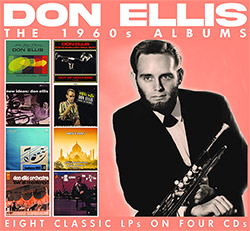

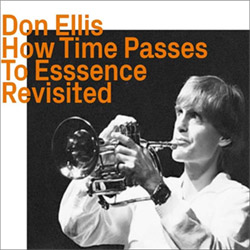
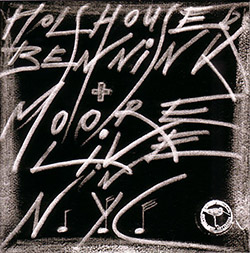



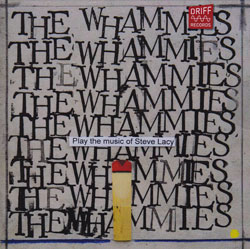
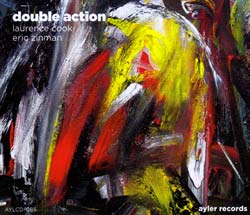



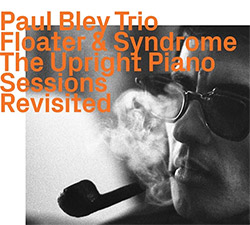

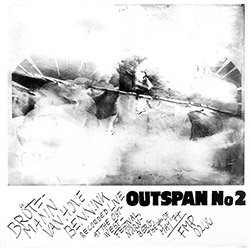

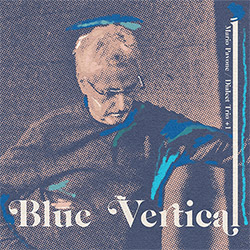

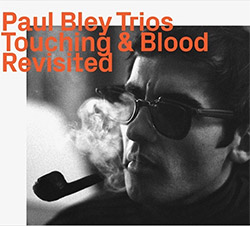
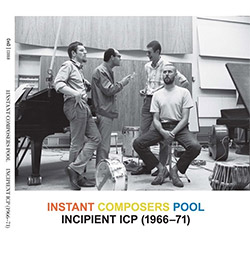
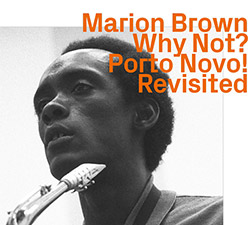

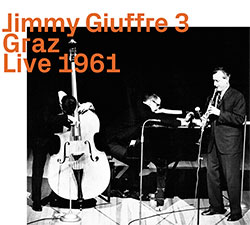


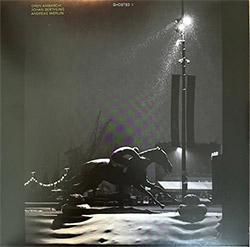

![HobbyHouse (Mia Dyberg / Axel Filip): HobbyHouse [CD + DOWNLOAD]](https://www.teuthida.com/productImages/misc4/36944.jpg)
![Mines, Kelsey / Erin Rogers: Scratching At The Surface [CD + DOWNLOAD]](https://www.teuthida.com/productImages/misc4/36945.jpg)
![Nebbia, Camila (feat/ Marilyn Crispell / Lesley Mok): A Reflection Distorts Over Water [CD + DOWNLOAD]](https://www.teuthida.com/productImages/misc4/36946.jpg)
![Vanheerentals, Adia: Taking Place [CD + DOWNLOAD]](https://www.teuthida.com/productImages/misc4/36947.jpg)
![Mines, Kelsey / Vinny Golia: Collusion and Collaboration [CD + DOWNLOAD]](https://www.teuthida.com/productImages/misc4/36948.jpg)
![Parkins, Zeena: Lament For The Maker [CD + DOWNLOAD]](https://www.teuthida.com/productImages/misc4/36949.jpg)
![Evans, Peter / Mike Pride : A Window, Basically [CD + DOWNLOAD]](https://www.teuthida.com/productImages/misc4/36950.jpg)



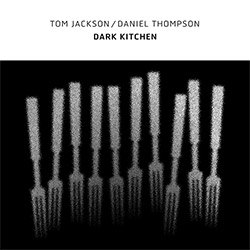
![Frey, Jurg : Composer, Alone [3 CDs]](https://www.teuthida.com/productImages/misc4/36927.jpg)
![Belorukov, Ilia / Alex Riva: Wrestling For Futility [CASSETTE w/DOWNLOAD]](https://www.teuthida.com/productImages/misc4/36994.jpg)

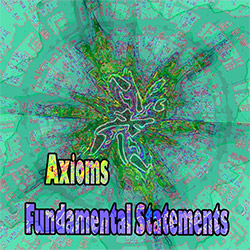










![Agnel, Sophie: Learning [VINYL]](https://www.teuthida.com/productImages/misc4/36841.jpg)

![Monaco, Amanda (w/ Michael Attias / Sean Conly / Satoshi Takeishi) : Deathblow [VINYL+ DOWNLOAD]](https://www.teuthida.com/productImages/misc4/36956.jpg)
![Frey, Jurg with ensemble]h[iatus: Je Laisse A La Nuit Son Poids D](https://www.teuthida.com/productImages/misc4/36988.jpg)
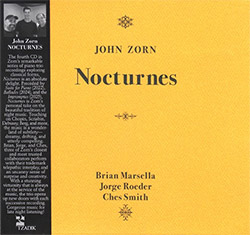
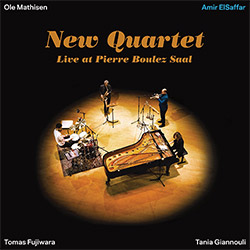
![ElSaffar, Amir / New Quartet : Live at Pierre Boulez Saal [VINYL]](https://www.teuthida.com/productImages/misc4/36830.jpg)

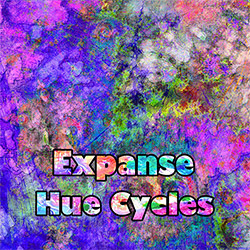
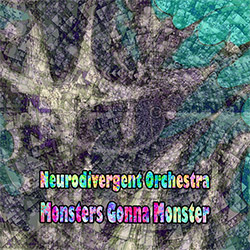


![Musicworks Magazine: #152 Fall 25 [MAGAZINE + CD]](https://www.teuthida.com/productImages/misc4/37004.jpg)
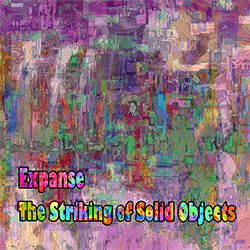




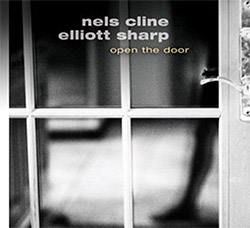
![[ahmed] (Thomas / Grip / Gerbal / Wright): Sama](https://www.teuthida.com/productImages/misc4/36976.jpg)

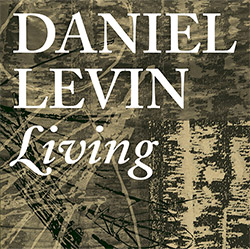
![Cleaver, Gerald / Brandon Lopez / Hprizm: In The Wilderness [COLOR VINYL]](https://www.teuthida.com/productImages/misc4/33060.jpg)
![McPhee, Joe : Defiant Jazz: a Joe McPhee Taster [VINYL]](https://www.teuthida.com/productImages/misc4/36859.jpg)
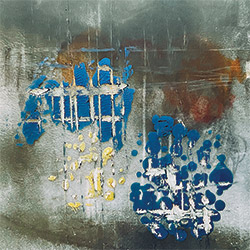
![Mateen, Sabir / Patrick Holmes / Federico Ughi : Survival Situation [LTD VINYL LP + DOWNLOAD]](https://www.teuthida.com/productImages/misc4/29891.jpg)
![Tucker, Dave / Pat Thomas / Thurston Moore / Mark Sanders: Educated Guess Vol. 1 [COLORED VINYL]](https://www.teuthida.com/productImages/misc4/30183.jpg)
![Sarian, Michael / Matthew Putman: A Lifeboat (Part I) [COLORED VINYL]](https://www.teuthida.com/productImages/misc4/30426.jpg)

![Genthon, Anouck / Lionel Marchetti: Suite Blanche [2 CDs]](https://www.teuthida.com/productImages/misc4/36642.jpg)
![Toeplitz, Kasper T.: Erosions Programmees [CD + BOOKLET]](https://www.teuthida.com/productImages/misc4/36639.jpg)
![Gate, The : Amost Live [CASSETTE + MAGAZINE]](https://www.teuthida.com/productImages/misc4/36836.jpg)






![A Magic Whistle: The Solar Cell [VINYL]](https://www.teuthida.com/productImages/misc4/36658.jpg)

![McGee, Hal: Columbus Expedition [Cassette w/ Download]](https://www.teuthida.com/productImages/misc4/36650.jpg)


![Jaeger, Kassel: Fernweh [VINYL 2 LPs]](https://www.teuthida.com/productImages/misc4/36541.jpg)





![+DOG+: The Light Of Our Lives [2 CDs]](https://www.teuthida.com/productImages/misc4/36009.jpg)


![Eternities: Rides Again [CASSETTE]](https://www.teuthida.com/productImages/misc4/36247.jpg)

![Lopez, Francisco: Untitled (2021-2022) [2 CDs]](https://www.teuthida.com/productImages/misc4/36438.jpg)





![Pisaro-Liu, Michael: Within (2) / Appearance (2) [2 CDs]](https://www.teuthida.com/productImages/misc4/36831.jpg)










![Musicworks Magazine: #151 Summer 25 [MAGAZINE + CD]](https://www.teuthida.com/productImages/misc4/36559.jpg)

![Brown, Dan / Dan Reynolds: Live At The Grange Hall [unauthorized][CASSETTE]](https://www.teuthida.com/productImages/misc4/36245.jpg)


![Zorn, John: The Song of Songs [CD + CD BOOK]](https://www.teuthida.com/productImages/misc4/36923.jpg)

![Coultrain: Mundus [COLORED VINYL]](https://www.teuthida.com/productImages/misc4/33056.jpg)
![Hprizm: Signs Remixed [COLORED VINYL]](https://www.teuthida.com/productImages/misc4/30635.jpg)
![Halls Of the Machine: All Tribal Dignitaries [CASSETTE w/ DOWNLOAD]](https://www.teuthida.com/productImages/misc4/36134.jpg)



![Koenjihyakkei: Live at Club Goodman [2 CDs]](https://www.teuthida.com/productImages/misc4/36111.jpg)

![Sorry For Laughing (G. Whitlow / M. Bates / Dave-Id / E. Ka-Spel): Rain Flowers [2 CDS]](https://www.teuthida.com/productImages/misc4/35985.jpg)

![Rolando, Tommaso / Andy Moor : Biscotti [CASSETTE w/ DOWNLOADS]](https://www.teuthida.com/productImages/misc4/36106.jpg)


![Electric Bird Noise / Derek Roddy: 8-10-22 [CD EP]](https://www.teuthida.com/productImages/misc4/35970.jpg)








![Elephant9 : Mythical River [VINYL]](https://www.teuthida.com/productImages/misc4/34624.jpg)



![Elephant9 with Terje Rypdal: Catching Fire [VINYL 2 LPs]](https://www.teuthida.com/productImages/misc4/35355.jpg)
![Coley, Byron: Dating Tips for Touring Bands [VINYL]](https://www.teuthida.com/productImages/misc4/17906.jpg)

![Lost Kisses: My Life is Sad & Funny [DVD]](https://www.teuthida.com/productImages/misc4/lostKissesDVD.jpg)